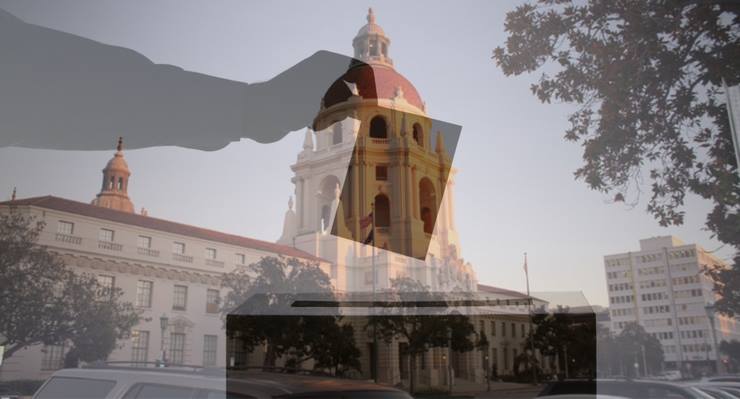Pasadena police have joined law enforcement agencies across the country that increasingly are keeping records of your vehicle’s movements through little-known camera systems called automated license plate readers.

HOW IT WORKS: The license plate reader shown mounted on a Pasadena patrol car reads all license plates seen by its four cameras and almost instantly displays a graphic of the plate number and image of the vehicle, as well as the latitude, longitude, date and time of the vehicle’s sighting. If the pictured vehicle has been reported stolen, a high alert voice alarm is sounded and a visual alert appears on the monitor screen. [Composite artwork: James Macpherson]
As police officers go about their regular patrol, these powerful readers are taking pictures of thousands of license plates per hour and checking them against lists of stolen vehicles or vehicles associated with felony warrants. Â The Pasadena Police Department has used them for several years since buying the first one with a federal grant.
The license plate numbers, vehicle photographs, time and date and geographic coordinates are stored in databases, but what happens to that information?
Last week, the American Civil Liberties Union called for more regulations on license plate readers after reviewing the records of nearly 600 state and local police departments across the country. They found many agencies had no policies stating how the data should be used.
Pasadena Police Department Lt. Pete Hettema said policies about how Pasadena’s data may be used will be developed at the county level.
“The larger database that they’re trying to put together with the county would tie all of the local areas together,” Hettema said. “It’s not really up and operational yet. It kind of depends on the size of this database and what’s accessed in it.”
Hettema said how long the data is kept usually depends on the storage limit for each agency’s server. In the LA area, the data is usually stored two to five years, according to various reports.
Through an open records request, the Electronic Frontier Foundation obtained a PowerPoint presentation showing how the county’s database works through the Los Angeles County Sheriff’s Advanced Surveillance and Protection system. The document appears to indicate Pasadena’s license plate records are already searchable through the county’s system. The sheriff’s department has not responded to requests for clarification.
In May, the ACLU of Southern California and the EFF filed a lawsuit against the Los Angeles Police Department and Sheriff’s Department after the agencies declined to provide a week’s worth of data collected from the license plate readers. The groups were hoping to see exactly what information is being stored by the county’s two biggest police agencies. The lawsuit is still pending.
Jennifer Lynch, staff attorney for the EFF, worries about the creation of regional databases. She said another one is being created in the San Francisco area.
“I could see that once those regional databases are formed then they will combine data throughout the state and also make that data to federal agencies,” she said. “I think that’s where the real concern lies.”
Hettema recognizes more guidelines are needed, but he believes the plate readers will continue to be an important tool for law enforcement in the future.
“It’s a really good tool. I think it needs to be refined exactly how it’s used just like a lot of the things we have right now with technology, but that’s in process,” he said.
In the first part of our investigation into license plate readers, which was published August 2, Pasadena Now looked at the way the license plate readers work. To read that story, click here.
Matt Thacker is a reporter who recently returned to his native California after spending almost all of his life so far in the Midwest. His passion for journalism started while writing for the student newspaper at the University of Louisville in Kentucky. After graduating with an English degree, he spent four years as the police and courts reporter for the News and Tribune in Jeffersonville, Ind. He won statewide awards for deadlines news, feature reporting and ongoing news coverage. His series of articles about a funeral home director accused of defrauding customers was selected as a finalist for story of the year by the Hoosier State Press Association Foundation in 2010. He has covered a U.S. Senate election, murder trials, police shootings and two natural disasters.














 0 comments
0 comments


